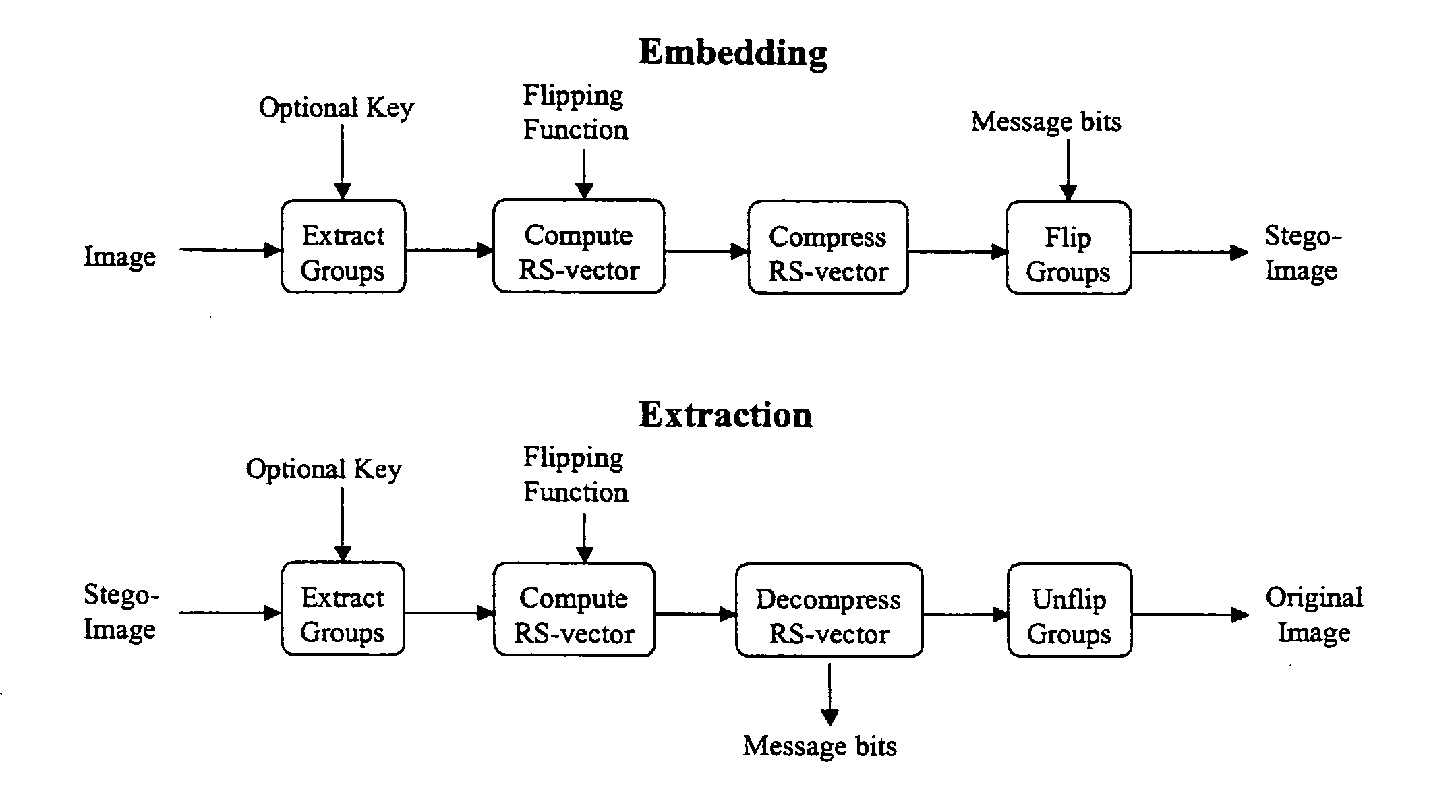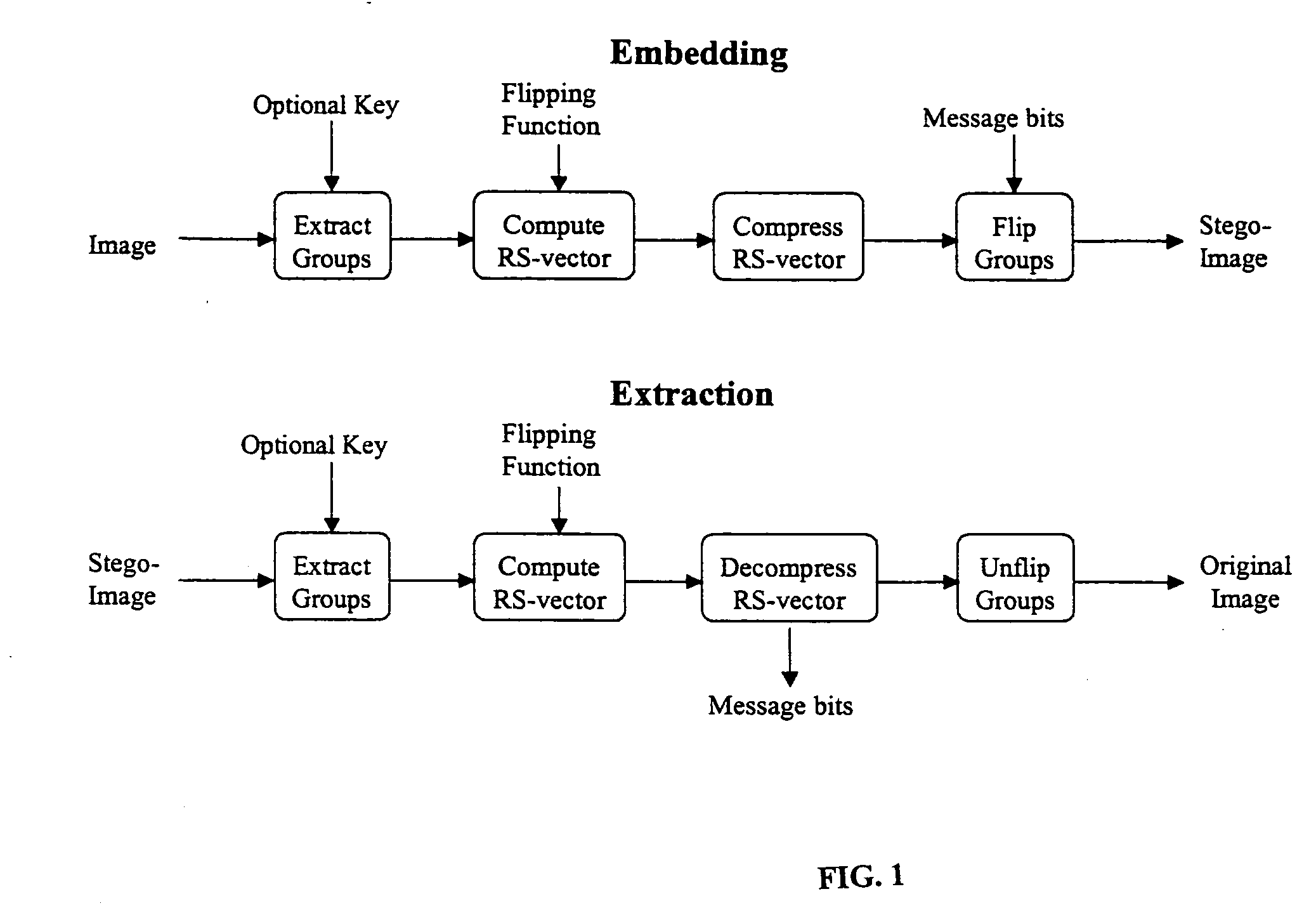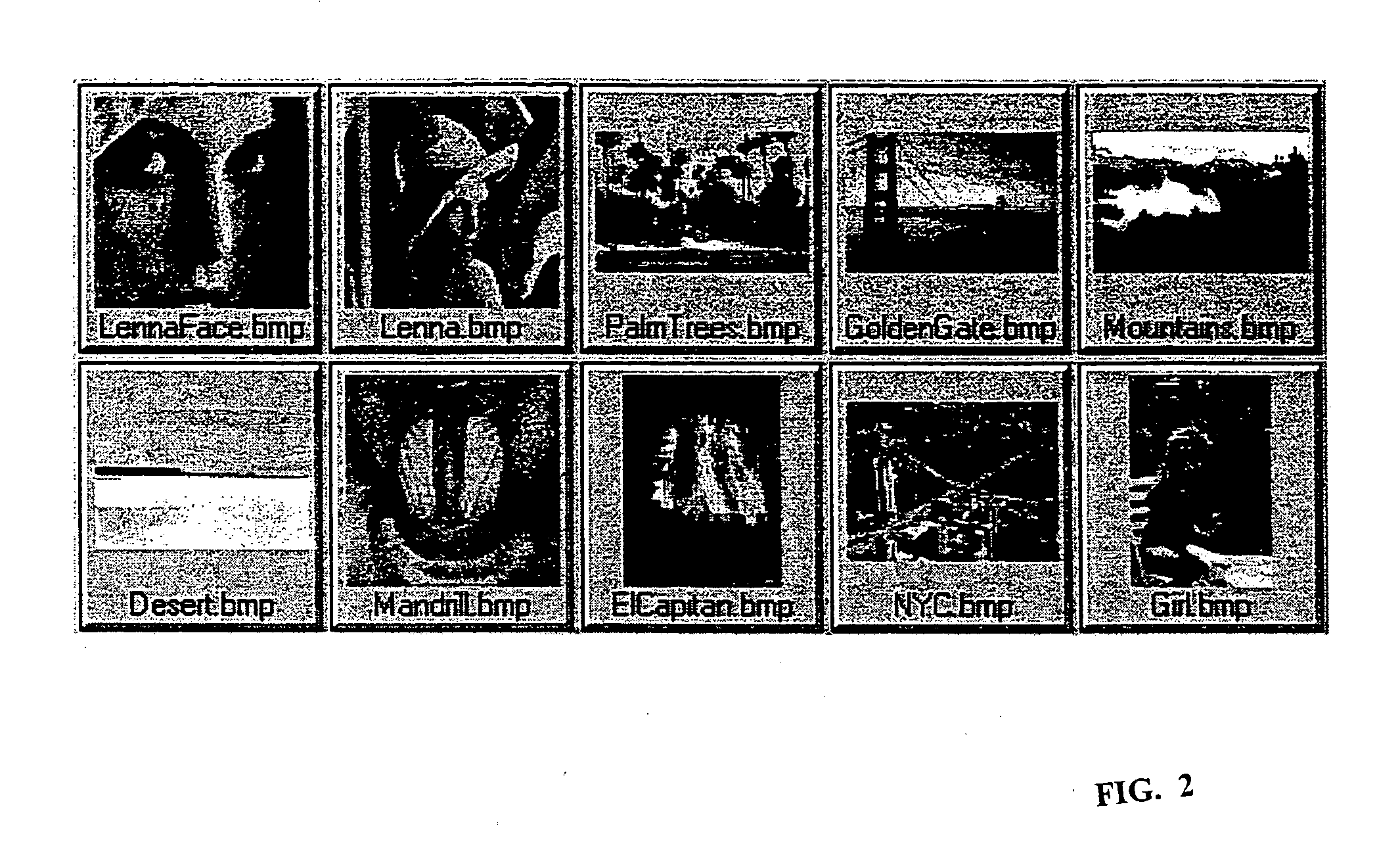Lossless embedding of data in digital objects
a lossless, digital object technology, applied in the field of embedding data into an, can solve the problems of disassembly and modification of original images, and the original image is unacceptable for medical applications, and achieve the effect of simple and elegant lossless techniques
- Summary
- Abstract
- Description
- Claims
- Application Information
AI Technical Summary
Benefits of technology
Problems solved by technology
Method used
Image
Examples
Embodiment Construction
[0031] Techniques of embedding data in a digital object cannot be completely reversed because of the loss of information from discarded (i.e., replaced) information, quantization, and truncation of sample values to a finite dynamic range (e.g., truncation to the range 0-255 for grayscale images). Most techniques for embedding high-capacity data in a digital object are based on either bit-replacement or quantization. These techniques offer little hope for embedding data without permanently distorting the digital object in which the data are embedded. Additive non-adaptive watermarks are almost lossless, except for those samples with values close to the boundary of the finite dynamic range, where truncation can occur. Modulo addition, as proposed in Honsinger et al., supra; Fridrich et al., “Invertible Authentication”, supra; can solve the problem only at the expense of introducing very visible artifacts. Another drawback of lossless data embedding based on additive robust watermarks ...
PUM
 Login to View More
Login to View More Abstract
Description
Claims
Application Information
 Login to View More
Login to View More - R&D
- Intellectual Property
- Life Sciences
- Materials
- Tech Scout
- Unparalleled Data Quality
- Higher Quality Content
- 60% Fewer Hallucinations
Browse by: Latest US Patents, China's latest patents, Technical Efficacy Thesaurus, Application Domain, Technology Topic, Popular Technical Reports.
© 2025 PatSnap. All rights reserved.Legal|Privacy policy|Modern Slavery Act Transparency Statement|Sitemap|About US| Contact US: help@patsnap.com



